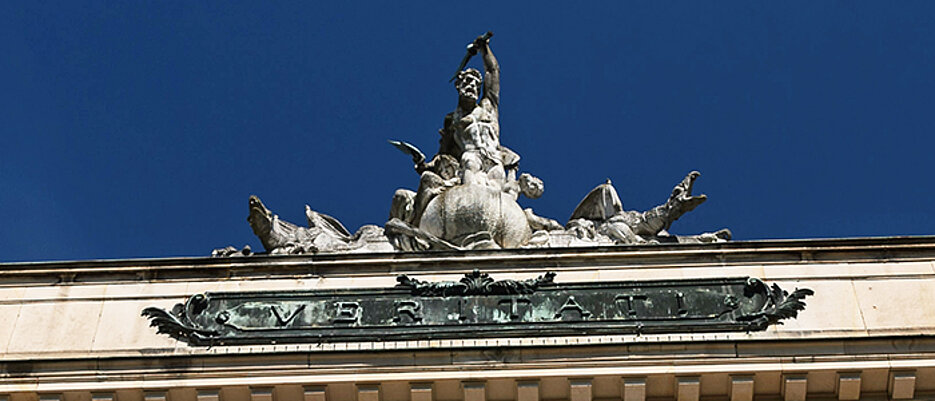The Senate of the University of Würzburg has adopted a code of conduct entitled 'Science - Freedom and Responsibility'. It shows how JMU defines and applies the freedom of science.
Julius-Maximilians-Universität (JMU) Würzburg has drawn up a code that defines the freedom of science and marks out possible limits and responsibilities. The JMU is thus following the example of the University of Hamburg. A JMU working group has intensively analysed the Hamburg Code and developed an independent text on this basis.
The new code 'Science - Freedom and Responsibility' complements JMU's mission statement and is available as a barrier-free pdf file in German and English on the university's website .
Working Group of 15 People Wrote the Code
The code was drawn up on behalf of a recommendation by the University Board by a group of 15 people from different status groups. These were Thomas Baier, Caroline Kisker, Zuri Klaschka, Andrea Kübler, Markus Ludwigs, Karl Mertens, Henry Mörtl, Thorsten Ohl, Heidi Pabst, Ralph Pordzik, Wolfgang Rössler, Stefanie Schmahl, Barbara Schmitz, Michael Stolberg and Andrea Szczesny.
The group was chaired by law professor Markus Ludwigs: 'The text of the Code was developed in a discursive process over a period of around five months. The group presented and discussed it in the central committees - from the Extended University Board to the University Council and the decision-making Senate.'
Self-assurance in Matters of Academic Freedom
According to Markus Ludwigs, the Code is a self-assurance on the status of academic freedom and the responsibility that comes with it.
'Its success will depend on whether and how the researchers at JMU bring the Code to life in their everyday scientific work.' This requires communication at all levels of the university. In addition to the translation into English, the basis for this is also the establishment of communication formats for the continuous transmission and discussion of the core content.
Basis for Successful Science
JMU President Paul Pauli: 'Academic freedom is a highly valuable asset and the basis of successful academic work. I am very pleased that we now have our own code on academic freedom, because it shows how highly we value this legal right at JMU. My thanks go to all those involved in drafting the code in the group and the committees.'
'As Vice President for Research and Junior Academics and a participant in the group, I would like to thank Chairman Markus Ludwigs and all members for the constructive, collegial and extremely committed working atmosphere,' says Caroline Kisker.







